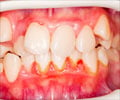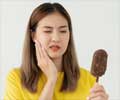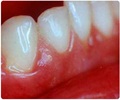New research from Tel Aviv University suggests that a coffee extract can inhibit the growth of bacteria that leads to bad breath.
New research from Tel Aviv University suggests that a coffee extract can inhibit the growth of bacteria that leads to bad breath.
New laboratory tests have shown that the extract prevents malodorous bacteria from making their presence felt - or smelt."Everybody thinks that coffee causes bad breath and it's often true, because coffee, which has a dehydrating effect in the mouth, becomes potent when mixed with milk, and can ferment into smelly substances," says breath specialist Prof. Mel Rosenberg of TAU's Sackler Faculty of Medicine.
But that is not always true. "Contrary to our expectations, we found some components in coffee that actually inhibit bad breath," Rosenberg added.
In the laboratory, the researchers monitored the bacterial odour production of coffee in saliva.
In the study, three different brands of coffee were tested: the Israeli brand Elite coffee, Landwer Turkish coffee, and Taster's Choice.
Rosenberg expected to demonstrate the malodour-causing effect of coffee in an in vitro saliva assay developed by Dr. Sarit Levitan in his laboratory. To his surprise, the extracts had the opposite effect.
Advertisement
Rosenberg would love to isolate the bacterial-inhibiting molecule in order to reap the biggest anti-bacterial benefits from coffee.
Advertisement
Purified coffee extract can be added to a breath mint to stop bacteria from forming, stopping bad breath at its source, instead of masking the smell with a mint flavour, the authors said.
The findings were presented to members of the International Society for Breath Odour Research in Germany.
Source-ANI
RAS















